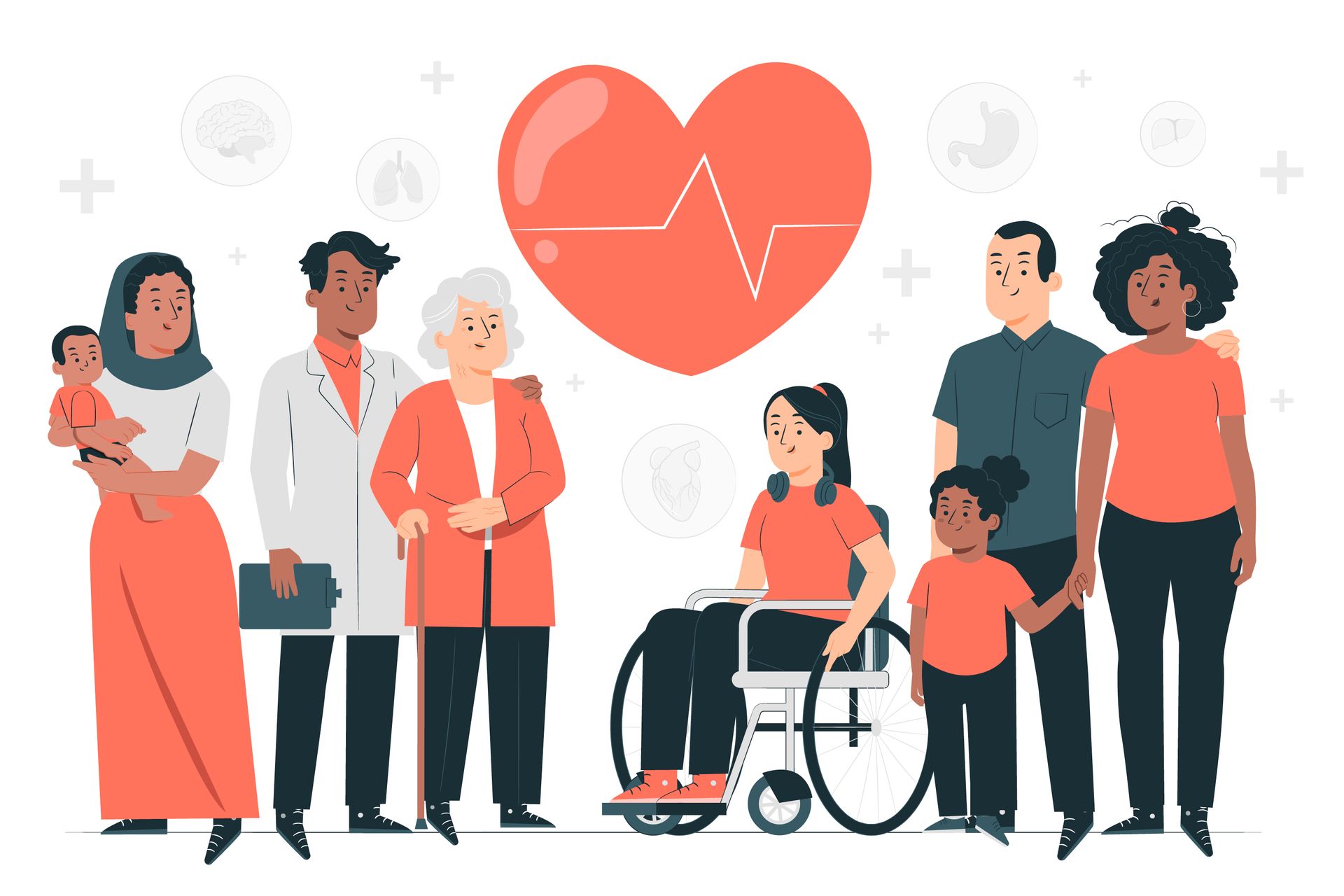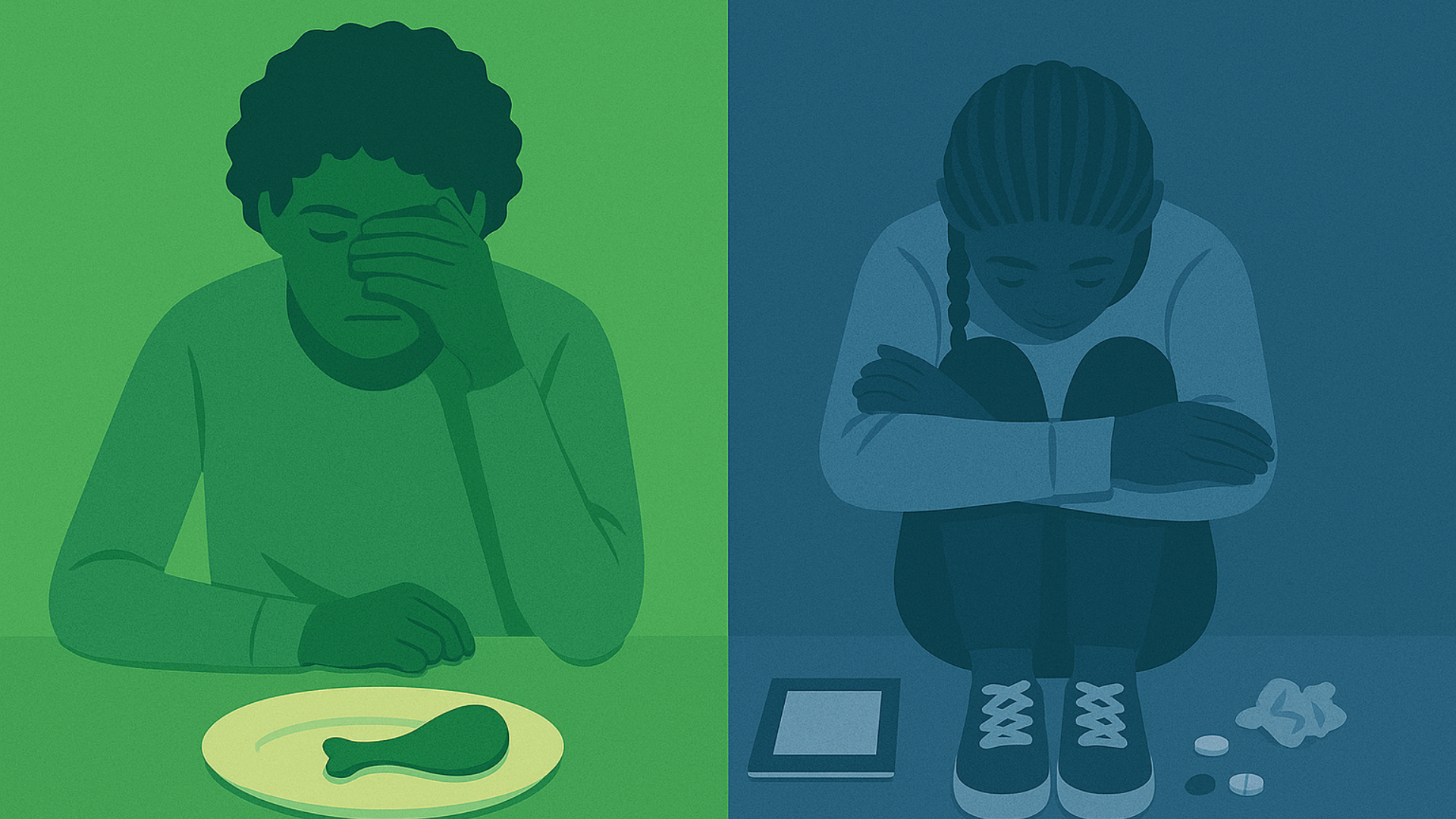Cultivating Better Health Care: Thrive’s Origin Story

By Thrive’s Founder and CEO Kat Geiger, LCSW, CEDS, PMH-C
PLANTING SEEDS FOR A BRIGHTER FUTURE
Throughout my career as a mental and behavioral health clinician, I’ve had many eye-opening experiences and realizations that ultimately inspired me to establish Thrive Wellness. Three of those stand out above all else: the importance of an integrated multidisciplinary team who meets and communicates regularly, the importance of offering access to treatment that spans different levels of care, and the importance of remaining clinician-owned.
With origins as an eating disorder specialist and clinical training and expertise in several areas, including obsessive-compulsive disorder (OCD) and perinatal mental health, I’ve witnessed the profound power of a multidisciplinary team of professionals working together to care for clients. I’ve seen how excellent communication and collaboration are critical for helping clients achieve optimal outcomes swiftly and assuredly.
I have also observed the opposite — practitioners under different roofs inadvertently working against one another. Well-intended providers separated into silos can create barriers to communication with one another that ultimately impede client outcomes. Additionally, providers with differing treatment philosophies can send mixed messages to their shared client, which leaves the client confused about their path to healing. Despite their best intentions, siloed specialists and disconnected clinicians can sometimes do more harm than good to a client’s outcomes.
Early on in my career, I became passionate about filling the prominent need for providing more integrated care from practitioners within both medical health and mental health disciplines. I’ve developed a deep understanding that when clinicians work together under one roof and one integrated philosophy, barriers to communication are eliminated and client outcomes are greatly improved. Because mental, behavioral, and physical health are undeniably linked, health care that encompasses all aspects of well-being is not only effective but essential. Since most clinicians choose one path for an education and career, we as practitioners arrive to work each day with a limited but specific skill set or specialization and a singular point of view. Collectively assessing and treating an individual’s health from all angles is critical in the healing process for many clients. As providers, we need each other’s perspectives to paint a panoramic picture of a person as a whole. We need each other to professionally thrive and to help our clients thrive in their medical and mental health.
Furthermore, a network of interconnected clinicians who practice with a unified philosophy across all levels of care, from outpatient to partial hospitalization, offers access to continuity in care. Research supports that continuity in care improves the quality and longevity of outcomes, increases satisfaction, and enhances the overall treatment experience for patients and clients. Continuity in care is also more cost-effective long-term for both clients and payors. Ultimately, cohesive care is at the heart of high-quality client- or patient-centric care.
Over time, it also became evident to me and many of our eventual Thrive team members that as more mental and behavioral health clinics became corporatized, the quality of treatment subsequently suffered. While private equity provided more funding for mental and behavioral health clinics, it also led to tight budgets sometimes dictated by businessmen and women with plans to turn those clinics over for a profit within a three- to five-year timeline. Unfortunately, this scenario most often diminishes the quality of care received by clients and causes feelings of overwhelm and overwork by therapists and other medical providers.
This certainly was the past experience for many providers who have since joined Thrive. In fact, many of us worked together years ago at a mental health facility that specialized in eating disorder treatment where we first experienced the impact and importance of an integrated care model. We consider ourselves a group of “wounded healers” — burned by corporate-owned clinics and determined to create a better system for ourselves, our clients, and our communities.
Since 2016, Thrive’s intent has always been to provide integrated and multidisciplinary client-centric care while keeping the soul of mental and behavioral healthcare alive and in the hands of clinicians — not corporations. Today, Thrive is honored to have a team of dedicated therapists, dietitians, primary care providers, psychiatrists, occupational therapists, and other recovery specialists who would rather be here helping clients reach their goals than just about anywhere else in the world. We are united in purpose, philosophy, and practice, and we are proud.
THRIVE’S HUMBLE ROOTS
With truly modest beginnings, Thrive first opened in 2016 as a small mental and behavioral health clinic with just three offices situated in a Northern Nevada basement. Although Thrive’s initial location was less than ideal, the passion emanating from the clinical team and the bravery radiating from the clients made the experience magical. This intersection of passion and bravery paved the way for Thrive’s growth and expansion. At first, the original Thrive Wellness expanded into historic homes in Reno , Nevada. Since then, Thrive has also opened two new clinics in Sacramento , California, and Waco , Texas.
GROWING WHERE WE ARE PLANTED
Because of our team’s passion and commitment to keep growing to best serve the communities where we are planted, Thrive has matured well past its humble beginnings and continues to evolve in response to the ever-changing needs of our communities. As we’ve partnered with clinics across the country that align with our values , we’ve been able to expand our spaces, services, and specialties. All of our locations are growing as our branches extend to reach and help more people in need of healing.
THRIVE HERE
Thrive Wellness is a holistic healing community that provides individualized and integrated physical, mental, and behavioral health care with compassion. Varying from location to location, our treatment offerings include inpatient and outpatient services for a myriad of conditions with specializations in eating disorders and perinatal mental health. Through carefully crafted treatment, a multidisciplinary team of passionate professionals, and an ever-growing community of care, Thrive plants healing seeds while nurturing your personal growth.
Explore our website to learn more about what we offer or reach out to seek support for yourself or a loved one. We’ll connect you with the care you need.
About the Author
Thrive’s Founder and CEO Kat Geiger, LCSW, CEDS, PMH-C
Kat Geiger, LCSW, CEDS, PMHC, is the founder and CEO of Thrive Wellness — a multidisciplinary team-based clinic specializing in treating perinatal mood and anxiety disorders, eating disorders, obsessive-compulsive disorders, and overall mental, behavioral, and physical health. Kat earned her master’s degree in social work from the University of California, Berkeley, and has twenty years of experience in mental health care. She has served as a mental health tech, therapist, clinical director, executive director, and CEO throughout her career. Her expertise includes treating eating disorders, perinatal mood and anxiety disorders, and obsessive-compulsive disorders, as well as emergency psychiatric intervention and pediatric psychiatric intervention. She has been awarded the 20 under 40 award in Reno, NV. and several other leadership awards throughout her career.
Not only is Kat passionate about developing individualized therapeutic interventions for each client she works with, but she is also dedicated to assessing communities for gaps and services in care and using her knowledge and skillset to fill those gaps. Above all else, Kat believes that healing happens through community. Kat is the mother of three beautiful children and has her own lived experience with perinatal loss and subsequent struggle.
The post Cultivating Better Health Care: Thrive’s Origin Story first appeared on Thrive Wellness.








